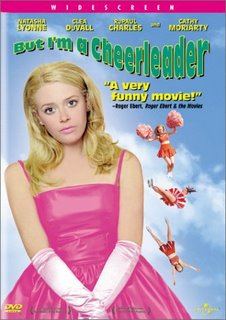(Before we start, here's the link back to earlier Itzkoff posts --
Stalking the Wild Itzkoff, Part Two, which links part to Part One, which in turn links to all of Itzkoff's reviews, and all of my posts about same. Hm. If I keep posting at this rate, I may need to create an Itzkoff-dex.)
Tomorrow's
New York Times Book Review (which subscribers to the newspaper get with the Saturday edition) has another "
Across the Universe" column from Dave Itzkoff. As usual, he gets a full page (page 12), and, as is becoming his norm, he uses that to review one book. This time, it's John Scalzi's
The Android's Dream. Actually, Itzkoff doesn't get to
Android until nearly the end of the essay, since he starts off talking about Heinlein, then gives a thumbnail sketch of Scalzi's career to date. If this was done well, it might be useful to the supposed purpose of "Across the Universe" -- introducing modern SF to an audience that doesn't read it -- but, well, this
is Dave Itzkoff we're talking about here.
So let's start with the quotes. Itzkoff opens elliptically:
When an emerging science-fiction writer's work earns him comparisons to Robert A. Heinlein, should he take them as a compliment? Don't misunderstand me: I have no reason to doubt that the old master's classic novels "Stranger in a Strange Land" and "The Cat Who Walks Through Walls" are still as good as I remember them (and if they aren't, please don't tell me). But Heinlein's military sci-fi, particularly the book that practically invented the genre, "Starship Troopers," has not aged well, to put it mildly.
We'll start small and work our way up:
- The Book Review has not yet discovered italics, so I'm replicating their style here. It's a small but telling point about their view of the world and of change.
- John Scalzi's name does not appear until the fourth paragraph of a review of his book. I haven't noticed that the Times typically reviews Zadie Smith's books via an extended explication of the works of Alice Hoffman, so this must be either an Itzkoff tic or an attempt at a crib sheet.
- "Heinlein's military sci-fi?" Quick -- name a military SF novel by Heinlein that isn't named Starship Troopers.
- Now, I'm well-known as a defender of The Cat Who Walks Through Walls -- I consider it a typical late-Heinlein, borderline-boring, self-indulgent adventure story with a great ending, which means I like it a lot better than most people -- but even I wouldn't call it one of Heinlein's classic novels. For Itzkoff to drag it out that like implies...well, that it's one of the two Heinlein novels that he actually read. (And, given that Itzkoff is thirty, that makes sense -- Cat was Heinlein's new novel in 1985, when Itzkoff was about ten, and in his prime reading-SF-indiscriminately years.) This is worrying, but not news; whenever Itzkoff talks about classics, he sounds like someone who hasn't studied for the big test and is desperately trying to wing it on charm.
After that, Itzkoff's essay spends two paragraphs describing
Starship Troopers and three more running through Scalzi's first novel,
Old Man's War. (The main connection is that many reviewers called
Old Man Heinleinian, which of course it is. Itzkoff seems to think
Old Man was Heinleinian because it was a military SF novel, though, which was not the parallel most of us saw.) Itzkoff finally gets to Scalzi's second novel,
The Ghost Brigades, and a direct Heinlein comparison:
...but what I can't completely overlook is an unusual swipe it [The Ghost Brigades] takes at Heinlein himself. During their training, Dirac and his company are made to read "Starship Troopers," which they collectively decide "had some good action scenes but required too much unpacking of philosophical ideas." Heinlein may have cultivated a philosophy that now seems distasteful bordering on appalling,
Itzkoff's account of
Starship Troopers called it fascist, for all of the wrong old reasons...
but it is unfair to criticize him for simply having a philosophy.
Did you catch that? I had to read it twice to be sure. Itzkoff thinks the characters in
Ghost Brigades disliked
Starship Troopers because of a
hidden philosophical agenda. I won't say that Itzkoff has never read
Starship Troopers and is coasting on memories of the movie (though I'm certainly
thinking that), but he's utterly misread one of the most obviously didactic, and intensely philosophical, books in all of SF. (His thumbnail description of the plot, earlier in the review: Johhny Rico "is instructed through a series of deep space combat missions that war is not only unavoidable, it is vital, and even noble." That may be what he learns, but it's not the main way he learns it. Oh, and that's a comma splice, too.)
After all that, he finally talks about
The Android's Dream, and doesn't like it all that much. But, by that point, Itzkoff has blown any credibility he might have had, so why bother to listen to him?
He ends with "a half-century later, some petulant, know-nothing critic will dismiss his [Scalzi's] ideas as dangerous and obsolete, then Scalzi truly will have earned his place alongside Heinlein in the canon of military science fiction -- and not a moment too soon."
Again, Heinlein's place in "the canon of military science fiction" is primarily as the author of one novel (and his help fixing Niven & Pournelle's
The Mote in God's Eye, the true ur-MilSF text). Scalzi has already written two. Itzkoff is, at best, confused. And I need to take my kids to see a movie, so I'm outta here.
 In case you care, here's what I said about Vol. 3 and Vol. 4. (Vol. 2 is at the top of this monthly round-up, and Vol. 1 is buried in this middle of this other monthly round-up.)
In case you care, here's what I said about Vol. 3 and Vol. 4. (Vol. 2 is at the top of this monthly round-up, and Vol. 1 is buried in this middle of this other monthly round-up.)



























